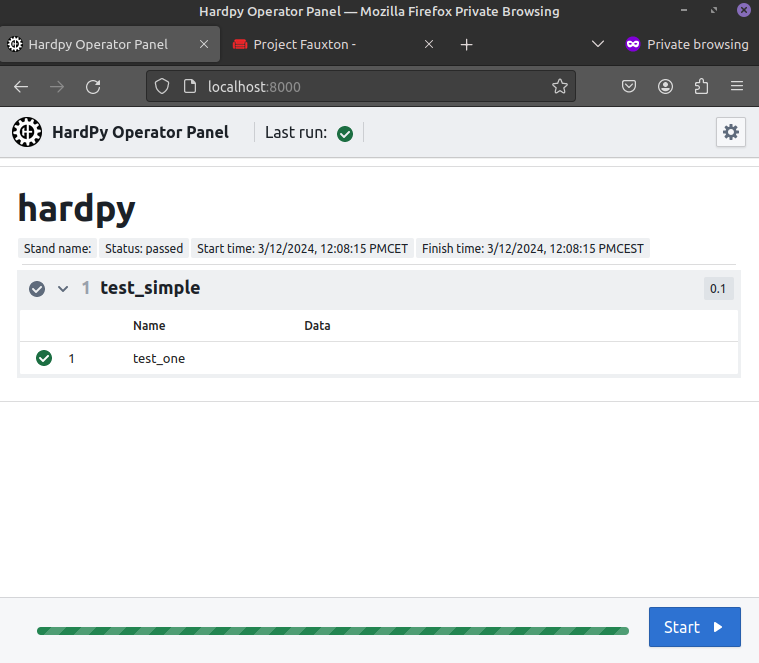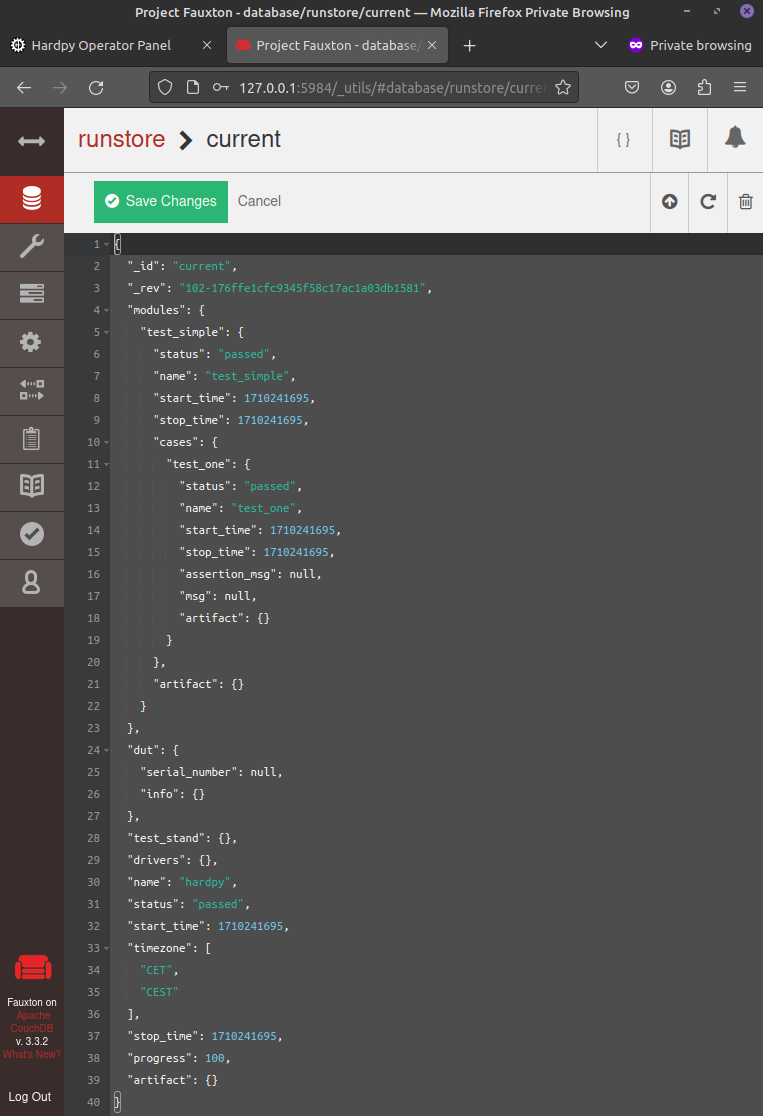HardPy is a python library for creating a test bench for devices.
Documentation: https://everypinio.github.io/hardpy/
Source Code: https://github.com/everypinio/hardpy
PyPi: https://pypi.org/project/hardpy/
HardPy allows you to:
- Create test benches for devices using pytest;
- Use a browser to view, run, and stop tests;
- Store test results in the CouchDB database.
pip3 install hardpyFind examples of using the HardPy in the examples folder.
This is a simple instruction for Linux. For Windows, follow the instructions from the documentation.
Launch CouchDB with Docker.
The Docker version must be 24.0.0 or higher.
Create couchdb.ini file:
[chttpd]
enable_cors=true
[cors]
origins = *
methods = GET, PUT, POST, HEAD, DELETE
credentials = true
headers = accept, authorization, content-type, origin, referer, x-csrf-tokenRun the Docker container from folder with couchdb.ini file:
docker run --rm --name couchdb -p 5984:5984 -e COUCHDB_USER=dev -e COUCHDB_PASSWORD=dev -v ./couchdb.ini:/opt/couchdb/etc/local.ini couchdb:3.3Command for Windows:
docker run --rm --name couchdb -p 5984:5984 -e COUCHDB_USER=dev -e COUCHDB_PASSWORD=dev -v .\couchdb.ini:/opt/couchdb/etc/local.ini couchdb:3.3.2Add simple test to tests folder
# test_1.py
import pytest
def test_one():
assert TrueLaunch hardpy-panel from tests folder or launch hardpy-panel tests and open page http://localhost:8000/ in browser.
The last test report is stored in runstore database, document - current. You can view the CouchDB instance through Fauxton web interface: http://localhost:5984/_utils


